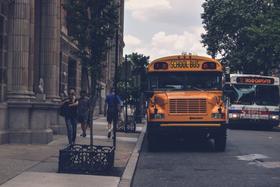Drug testing has been commonplace in professions that require critical decision-making skills, ranging from police officers to civil servants. A growing number of individuals also believe that the people who spend the most time with our children should also be subject to random testing of this kind. Teachers have come under the gun in recent years over the issue of random drug testing. While some parents and education experts believe random testing is necessary to keep schools safe, teachers believe these tests violate their privacy rights. Public school teachers are not universally required to undergo drug testing in every state. No federal mandate requires drug testing for teachers, and no state laws specifically mandate it for all teachers across the United States. However, drug testing policies vary significantly by state and individual school districts.
Drug testing is one part of these policies, and it serves a necessary role in a drug-free work culture. And because of the negative impact drug use can have, especially in safety-sensitive industries, companies should consider the benefits of drug testing in the workplace when developing new safety policies. Source: PharmaChek
Why Drug Testing?
In numerous states, questions have arisen over whether teachers in public schools should undergo random drug testing as a part of their employment. The practice is shared with other professionals, and some believe teachers fall into a similar category because they work directly with students all day. They argue that teachers who fail random drug tests could either be fired on the spot or sent for drug counseling when appropriate. Some in Congress support this idea, and parents are concerned about adults supervising their children throughout the school day.
This video examines the question of whether teachers are drug-tested or not.
What's the Problem?
However, drug use does not appear to be a prevalent problem among public school teachers. According to a major study conducted by the Department of Health and Human Services in 2007 and reported in a Time article, public educators ranked 18 out of 19 among professionals who use illicit drugs. The Time article also stated that only four percent of teachers have reported using illegal drugs, compared to 14% of construction workers who deal with dangerous equipment and conditions daily.
If the numbers are correct, it does appear that random testing would cost school districts a significant amount of money and bring relatively little return for the efforts. By some estimates, the cost for a single random drug test could run anywhere from $40 to $55. If random testing was performed throughout the year, it could easily cost school districts thousands of dollars each school year. This money would have to be taken from other education spending – when budgets are already fairly tight around the country.
Another issue with random testing is the violation of the teacher's privacy. Some are concerned that the drug test will reveal prescription medications the teacher is currently taking or even a pregnancy status that has not yet been announced to school administrators. While nearly all agree that a teacher who is behaving erratically or causing concern should succumb to a drug test, the idea of randomly testing teachers who are not under suspicion is not acceptable to most educators and teachers' unions.
Perspectives from Teachers and Stakeholders
Educator Attitudes
Educator attitudes toward drug testing can vary widely. Some teachers support drug testing as a means to ensure a safe and drug-free environment for students, believing it upholds the integrity of the teaching profession. However, others may view it as an invasion of privacy and a potential source of stress, particularly if they feel that the testing process is not conducted fairly or transparently.
Stakeholder Engagement
Engagement with stakeholders, including parents, teachers, and community members, shapes effective school drug testing policies. Stakeholders often have diverse opinions, with some advocating for strict drug testing to protect students and others emphasizing the importance of privacy and trust. Successful policy development typically involves open dialogue and collaboration to balance safety concerns with individual rights.
Future Considerations: Reflect on the Future of Drug Testing in Educational Settings and Potential Policy Developments
Several evolving factors will likely shape the future of teacher drug testing. As societal attitudes toward drug use, particularly marijuana, continue to change, schools may need to adapt their drug testing policies to reflect these shifts. This could involve reevaluating the substances included in drug tests and considering the implications of legalized recreational and medicinal marijuana use on school policies.
Technological advancements in drug testing methods, such as developing less invasive and more accurate testing techniques, may influence future policies. Schools might opt for newer testing methods that balance the need for safety with respect for individual privacy.
Furthermore, ongoing legal developments and court rulings will be critical in shaping future school drug testing policies. As states continue introducing and refining drug testing laws, schools must ensure compliance with state and federal regulations, which may vary significantly.
This video looks at the future of drug testing.
Finally, there is a growing emphasis on integrating drug testing with broader educational and support initiatives. Schools may increasingly focus on prevention and early intervention strategies, aiming to address the root causes of substance use rather than relying solely on punitive measures. This holistic approach could lead to more effective and supportive environments for students and educators.
Questions? Contact us on Facebook. @publicschoolreview
#DrugTesting #EducationPolicy #Teachers #PublicSchools #Legalization #PrivacyRights #SchoolSafety #Education2024















